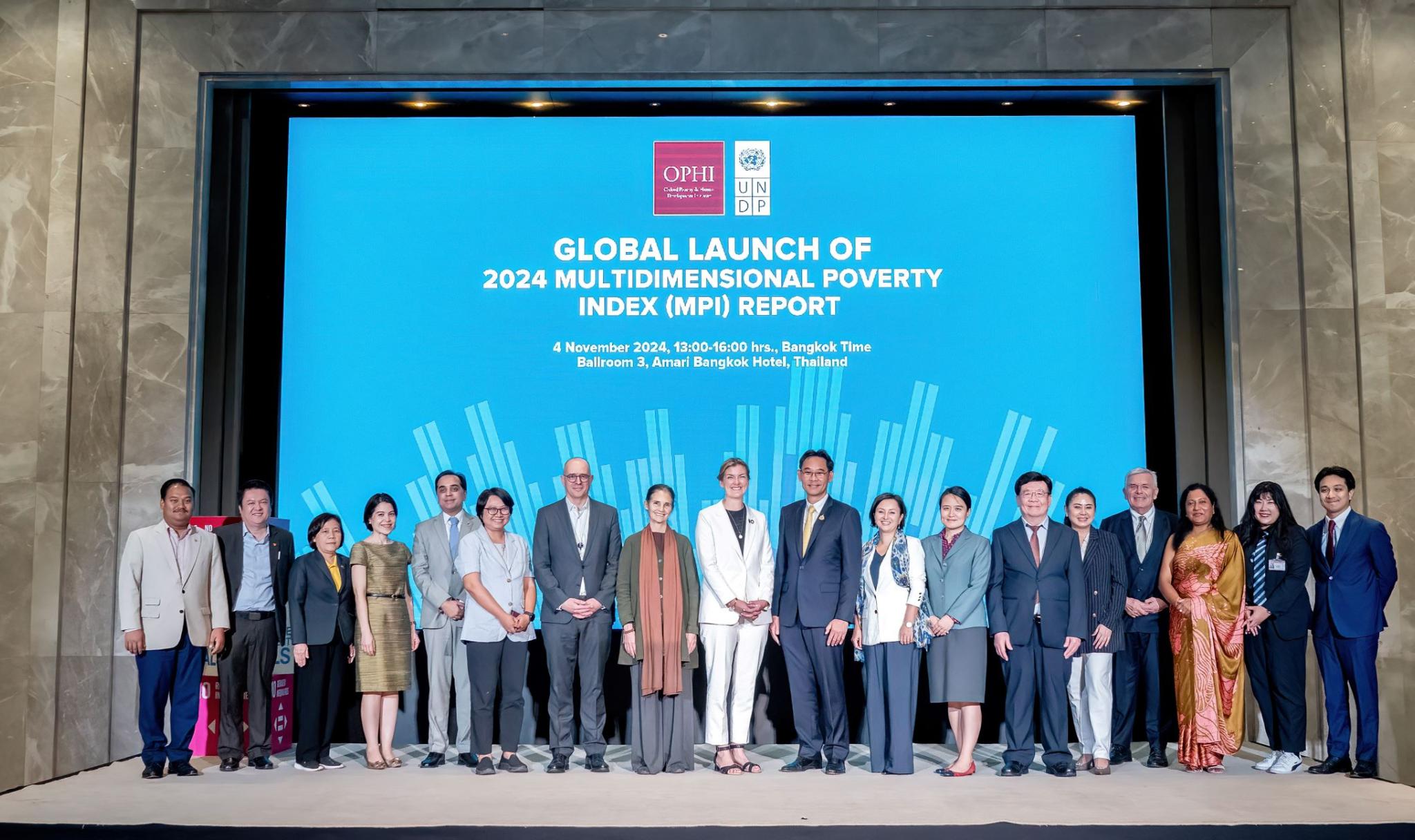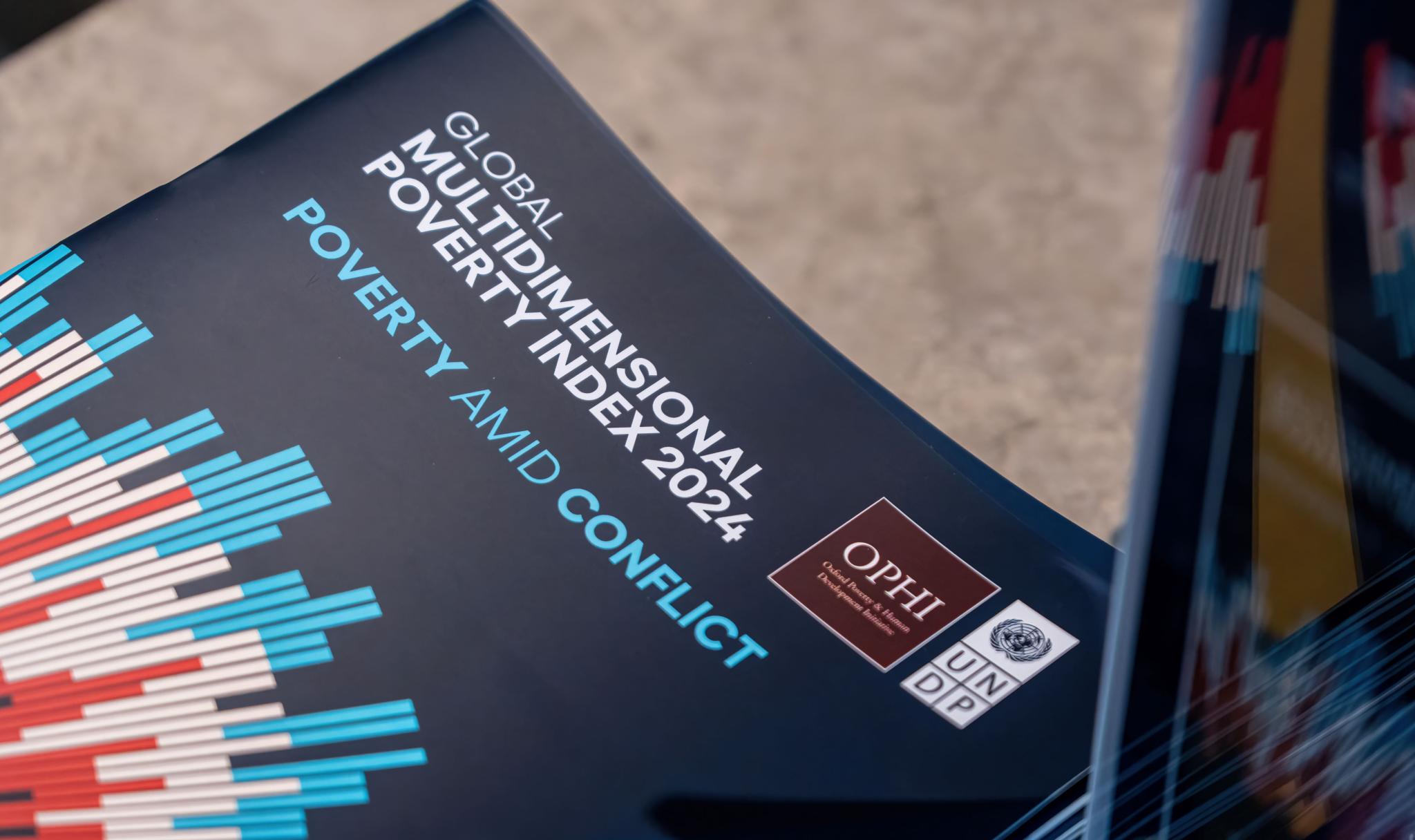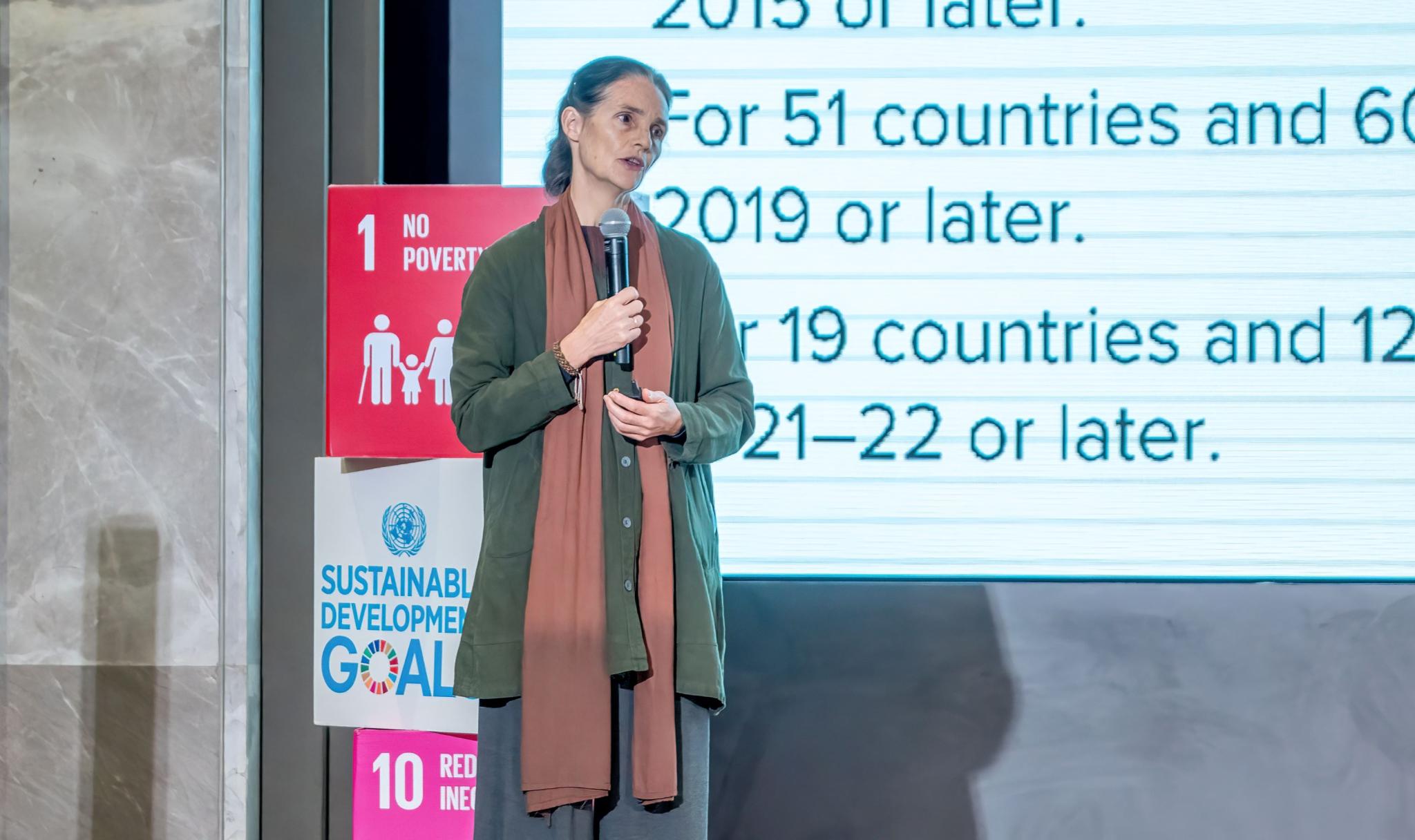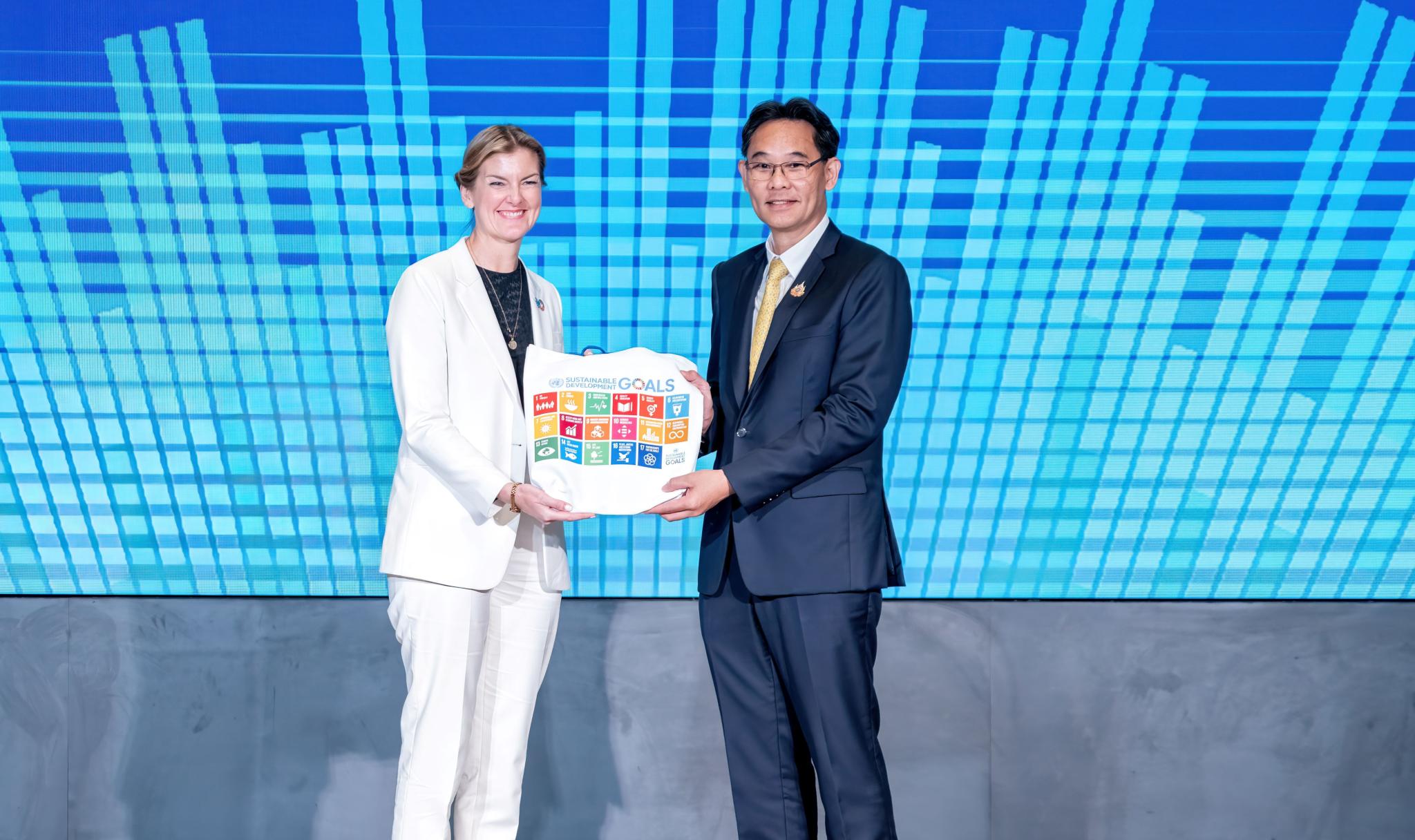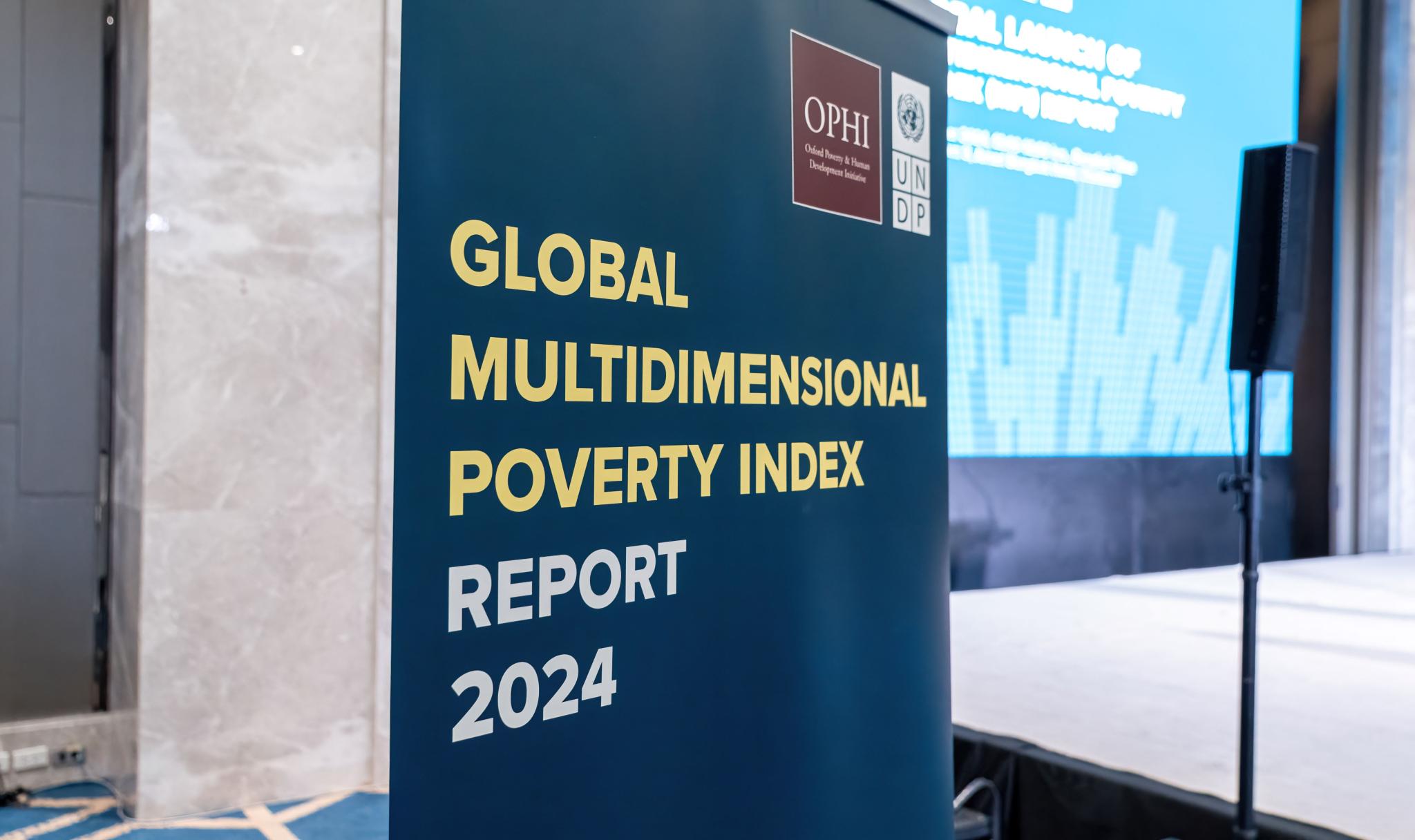'Peace remains the fertile soil of progress': 2024 Global MPI Report launches in Thailand
The 2024 Global Multidimensional Poverty Index report ‘Poverty amid conflict’ was launched in a hybrid event in Bangkok today kindly hosted by the United Nations Development Programme in Thailand.
According to the 2024 global MPI, Thailand halved the number of people living in multidimensional poverty in just seven years. The numbers dropped from 909,000 in 2012 to 416,000 in 2019, declining further to 352,000 people living in multidimensional poverty by 2022. The country’s MPI value is 0.002, the lowest among the ASEAN countries that are included in the study.
The event featured high level remarks on the importance of peacebuilding for transformative change from Ms Niamh Collier-Smith, UNDP Resident Representative to Thailand; Mr Achim Steiner, UNDP Administrator; Mr Danucha Pichayanan, Secretary-General, Office of the National Economic and Social Development Council; and, Ms Irina Goryunova, UNDP Deputy Resident Representative to Thailand.
In a recorded message, Achim Steiner reflected on the power of the MPI as a policy tool and said that ‘by examining poverty at the micro-household level, the MPI is shedding new light not only on who the poor are, but how they are poor and, perhaps most importantly in terms of consequences, what policies are most effective to address their unique circumstances’.
Addressing the theme of the report, Achim Steiner spoke of how ‘the fact that 40% of the world’s multidimensional poor live in regions scarred by conflict and fragility also reminds us to redouble our efforts to reach this last mile and most importantly by stopping conflicts and wars. It also reminds us that peace remains the fertile soil of progress, the nurturing ground where people can plant the seeds of opportunity and escape the barren land of poverty’. He very graciously thanked OPHI for their ‘deeply valued partnership on this unique initiative, they bring a professional rigour and commitment that is second to none to this task’.
Professor Sabina Alkire, OPHI Director, and Ms Yanchun Zhang, Chief Statistician, Human Development Report Office, UNDP, presented on the findings of the report. Sabina concluded their presentation with the hope that the report will encourage readers to use the global MPI where it is pertinent and to think with ‘imagination, creativity and with commitment of how to play different roles in reducing multidimensional poverty, or – if your country has them – reducing multidimensional poverty with national MPIs’.
The global MPI is an internationally comparable index of acute multidimensional poverty covering over 100 countries in predominantly developing regions. It tracks global poverty levels and also serves as a springboard to encourage the development of national Multidimensional Poverty Indices (MPIs) to measure poverty according to national definitions. Mr Danucha Pichayanan, Secretary-General, Office of the National Economic and Social Development Council presented on 'Peace, Poverty Eradication, and Thailand’s Way Forward' and described Thailand’s use of national MPI measures, showing its success in reducing MPI over the years, and speaking of the ‘significance of the MPI as an essential tool for policy formulation’. As an example, he detailed how Thailand has rolled out more precise targeting of social protection using an MPI constructed from a registry dataset built on multiple merged datasets.
An expert panel moderated by Ms Thanchanok Jongyotying, Chief News Editor, TNN discussed 'Global Lessons and Implications for Thailand.' Ms Finda Koroma, Chief Executive Officer of Africa Human Capital Development Plus (HCD+), and the Executive Director of F.K. Consulting Inc shared how conflict and sustainable development have a two-way relationship, particularly within the context of sub-Saharan Africa, and outlined some policy interventions to address this challenge. Dr Ulrich Schmitt, Manager, World Bank Thailand and Myanmar spoke of the impacts of conflict in Myanmar as well as the recent history of economic growth in the region. Associate Professor Sompop Manarungsan, President of Panyapiwat Institute of Management shared his thoughts on next steps for Thailand’s policy responses to the topics under discussion. Ms Warangkana Rattanarat, Country Program Director of RECOFTC, a Civil Society Organisation, explained the relevance of land tenure rights for rural communities.
Ms Irina Goryunova, UNDP Deputy Resident Representative to Thailand concluded the event by saying 'let us leave here today committed to working together in building resilient systems and prioritise both peace and development'.
The event was the first time the official joint launch of the 2024 Global MPI Report with the UNDP Human Development Report Office was held outside of New York. Additional events that unpack the findings will be posted online in due course.
More Information
- Watch the recording of the livestream
- Download the report Global Multidimensional Poverty Index 2024: Poverty amid conflict
- Visit the full set of Global MPI 2024 resources: Data Tables; Country Briefings; Documentation (Methodological Notes); Technical files; Interactive Databank; Multimedia.
- Visit the Human Development Report website for the global MPI report and data explorations.
- UNDP Thailand Press Release | While 1.1 billion people live in multidimensional poverty globally, Thailand halved multidimensional poverty within 7 years according to the Global MPI Report.



